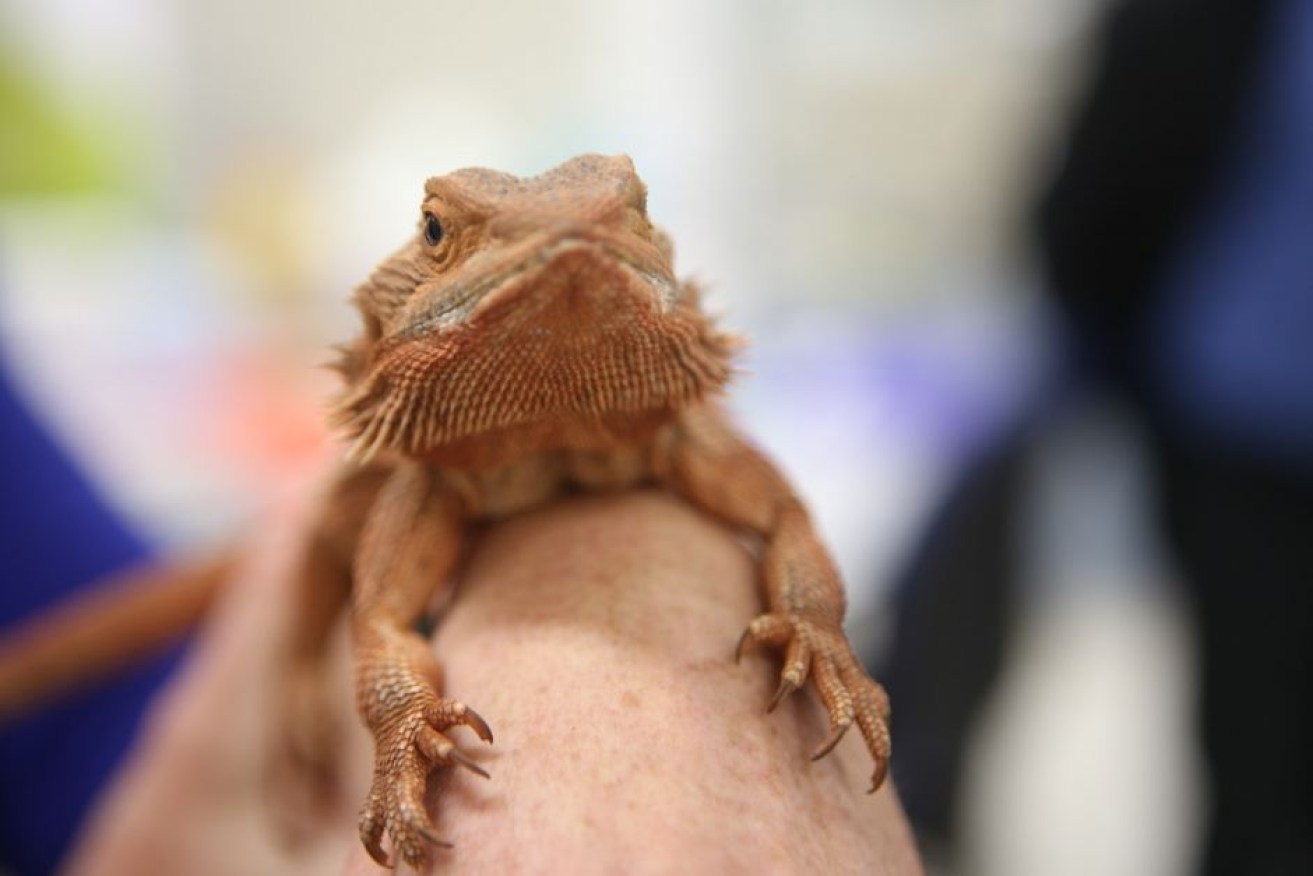Australian scientists unlock reptile sex-swap mystery

Researchers examined Australian bearded dragons to make their discovery. Photo: University of Canberra
In a selection of reptile species a change in temperature can cause a sex swap.
And by studying bearded dragon lizard eggs, Australian researchers have now discovered how that sex selection process works.
With just a change in temperature, the reptile’s offspring can switch from male to female inside the egg at 32 degrees Celsius and above.
For the first time, a University of Canberra-led research team have identified a temperature-sensitive molecular signature in a family of genes that controls the expression of many other genes.
Lead author and CSIRO research scientist Dr Clare Holleley told ABC Radio Canberra the discovery could spark a new approach to understanding sex selection in animals.
“The dragon lizard has sex chromosomes similar to birds that determine sex at normal temperatures,” Dr Holleley said.
“But at high temperatures embryos with male sex chromosomes reverse sex and hatch as females.
“Once it gets up to about a 36-degree incubation temperature, 100 per cent of the offspring that are laid will be female.
“So they can be chromosomally males, where their genes are telling them they should be a male animal, but the temperature overrides this and they grow up to be fully functional females.”
Sex selection process works in other animals
The same kind of mechanism was found in alligators and turtles.
“We think this might be in operation across the entire reptile diversity,” Dr Holleley said.
Scientists have been working to discover how sex switching happens for more than 50 years.
“We’ve known for a long time that if you incubate reptile eggs at different temperatures, you can get males and females,” Dr Holleley said.

Professor Arthur Georges and Dr Clare Holleley are part of the University of Canberra-led research collaboration. Photo: University of Canberra
“Until now we’ve never really understood just how that happens.
“Our work looked at all the messenger ribonucleic acid (RNA) molecules that were made by dragons that were functional females, even though genetically they were male.
“We compared these molecules with RNA made by normal males and normal females.”
Co-author Ira Deveson from the Garvan Institute of Medical Research said their work uncovered a unique difference.
“We found that sex-reversed females produce a unique message, with their RNA retaining a chunk of sequence that is normally spliced out of the message,” he said.
“This means that the gene won’t make a normal protein.
“Somehow that throws a spanner in the works when it comes to making a male.”
A changing climate
The research, published in the journal Science Advances, will allow scientists to understand which species are at greater risk of extinction due to global warming.
“The changing climate is a really important thing if you’re a reptile that determines sex by temperature,” Dr Holleley said.
“It means you’re at a risk, if it’s too hot, of having all the offspring come out the same sex.”
The research team is looking to expand its research into the impact of stress on sex selection.
-ABC








